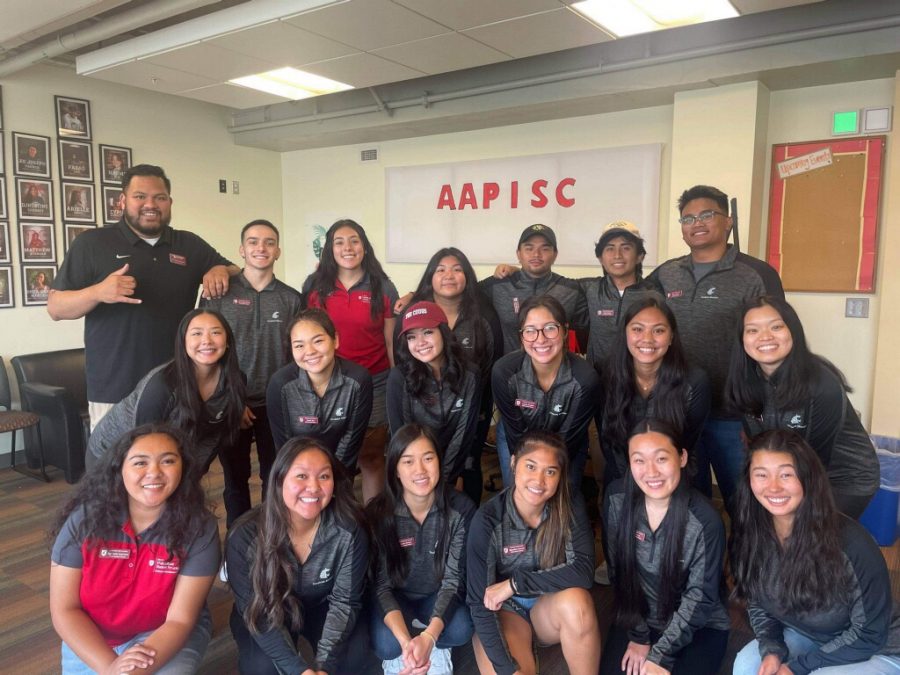AAPI Student Center provides community amid feelings of isolation
AAPISC open to all ethnic backgrounds, employs over 20 student mentors
Over 20 student mentors work for the AAPISC. Most were mentored by upperclassmen when they started at WSU.
August 24, 2021
Many freshmen and sophomore students are beginning their lives away from home for the first time, resulting in feelings of isolation from family and friends. The Asian and Pacific Islander Student Center is designed to bridge that gap.
AAPISC retention counselor Dom Faga’autau said he started as a mentor with the center as a student and now has worked there for over 10 years.
“We want to be a place where people can build family and create lifelong relationships,” he said.
The AAPISC is open to people of all ethnic backgrounds despite being geared towards the AAPI community, Faga’autau said. Currently, the center aids over 48 subethnic groups, most of which consist of first- and second-year students.
The center is designed to connect students to resources, provide mentorships, host cultural events and support students in their academic journeys, he said.
Over 20 student mentors work for the AAPISC. Most were mentored by upperclassmen when they started at WSU. Junior hospitality major Lee-Joseph Franco said he came to WSU from Makawao, Maui, Hawaii, and reached out to the AAPISC for support.
Franco said the AAPISC found him a fellow student mentor from Hawaii and that it was a great experience as an underclassman. The experience motivated Franco to become a mentor himself.
“I had a student who reached out and said he wasn’t doing well in his classes,” he said. “We narrowed it down to being lost in the workload, so I created a schedule/planner for him, to help direct him through his workload.”
WSU is located in a predominately white region lacking many of the cultural elements students found comfort in back home. Losing touch with a person’s cultural identity can result in feelings of isolation, he said. The AAPISC fills this gap for ethnic students.
“These centers aren’t just here to service students of their specific ethnic backgrounds,” Franco said. “If you need help, all of our student mentors are always here for you.”
The AAPISC has not yet set its office hours for the academic year but can be reached at [email protected] or (509) 335-1986. The AAPISC is currently revamping its website but is active on Twitter, Facebook and Instagram.





















